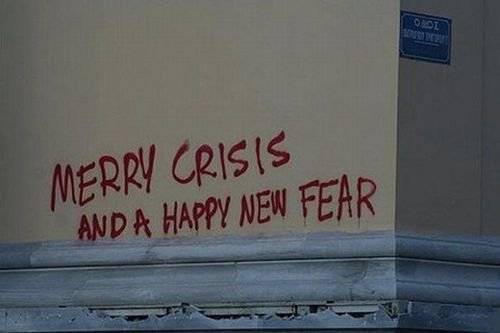Join Our Telegram channel to stay up to date on breaking news coverage
Although there seems to have been a small bit of progress in finding consensus on the block size issue in Bitcoin, the reality is that there still isn’t a formal plan for altering the block size limit in Bitcoin Core at any point in the near future. Many proposals have been made, but it appears that some contributors are looking to raise the block size cap at a much faster rate than others. This has caused a bit of a rift in the Bitcoin development community, and some believe that no consensus will be found on the matter until the number of transactions in each block hits a crisis point.
Also Read: Is the Bitcoin Community Jumping to Conclusions on the Block Size Debate?
Crises Bring Us to Consensus
Vice Chairman of the Board for BitFury George Kikvadze and Bitcoin Core Contributor Peter Todd were both recently featured on a panel related to Bitcoin governance at Bitcoin Pacifica 2015, and it was Kikvadze who originally brought up the idea that consensus on the block size limit may not be reached until there is a crisis. Kikvadze used an analogy to governance in the United States to explain his point:
“I think consensus is reached when there is a crisis, simply put, because everybody has different priorities in operating business, and maybe a certain group that thinks there is an issue, which has priority number one but for me it may be issue number five or six — or I may just not be aware that there’s issue to a point where it’s different. But, when there is a discussion and when there is a crisis and your economic state is there, then you pay attention. So, I think there’s no perfect mode of how to design a structure for that, but typically, in United States history, when you have the highest rating of president, both parties rally when you have a crisis. It lasts for a couple of months then it drops off down to the 10, 20% rating. Typically, it’s very similar. You can extrapolate it to this system.”
There may be some truth to Kikvadze’s theory, and it would appear that Chicago Mayor Rahm Emanuel would agree with his point on American politics. In the past, Emanuel has stated, “You never want a serious crisis to go to waste. And what I mean by that — it’s an opportunity to do things you think you could not do before.”
Bug Fixes Find Consensus Quickly
There is also a precedent for crises causing changes in Bitcoin in the past. Peter Todd noted that it has been easy to gain consensus on critical changes in the past such as a bug in the code early on that allowed someone to create new bitcoins out of thin air:
“I’ll make a point because you just said how nearly every change we’ve made to bitcoin to the protocol definition has been in response to a bug. As an example, we had a bug which let people create money out of thin air. It was very easy to get consensus that that was not how the protocol should work. They should change that and that was probably fixed within 24 hours, if not even less. We’ve had issues with OpenSSL, deep down cryptographic details that could cause problems. In that case, it wasn’t an emergency fix, but we still got consensus very easily with very few people really involved.”
The fact that changes to Bitcoin Core are able to be made so quickly in times of crisis could have implications for any future changes to the block size limit. Although there are many contributors who are against a large increase to the block size right now, it would be interesting to see if consensus could be found on an increase to something like an 8MB block size limit if the change was warranted by the number of transactions taking place on the network. There could be a large amount of pressure on the developers from Bitcoin users and businesses to make such a change in that kind of scenario.
Why Finding Consensus on Block Size is Hard
Todd also shared some thoughts on why it’s so difficult to come to consensus on the block size during his remarks. In his view, the block size is about much more than just changing a number because it could have implications on who is allowed to fully participate in the system. He explained:
“We’ve never had, like the block sizing issue, where there is actual, genuine, and real disagreements. What’s really interesting about block size, it’s also an issue about who gets to influence governance in the future, which makes it a really, really charged issue. That’s very hard to get consensus with because part of the issue is you’re deciding who are we going to exclude from being part of the consensus the next time around? That’s not just true with let’s say a bug, like, let’s prevent people from making money out of thin air.”
Peter Todd then expanded on this thought by specifically pointing out that changes to the block size limit could have an impact on who is able to run a Bitcoin full node:
“I mean concretely, enforcement of the rules is done by full nodes, and the only way you can run a full node is if people can keep with the data demands of the Bitcoin blockchain. Most people are not running full nodes because they’ve chosen to trust other people to do it for them. Right there, to an extent, you’ve shut out some people by the design of Bitcoin from being part of that governance.”
It’s still unclear if it will take a crisis for an increase in the block size limit to happen in Bitcoin Core, but there does seem to be some rough consensus that an increase in the limit to at least 2MB could happen in the relatively near future. Of course, the number of transactions on the Bitcoin network could grow exponentially in a short period of time, which means a change may not be made until blocks are full and transaction fees begin to rise.
Featured image via János Pálinkás.
Kyle Torpey is a freelance journalist who has been following Bitcoin since 2011. His work has been featured on VICE Motherboard, Business Insider, RT’s Keiser Report, and many other media outlets. You can follow @kyletorpey on Twitter.
Join Our Telegram channel to stay up to date on breaking news coverage


